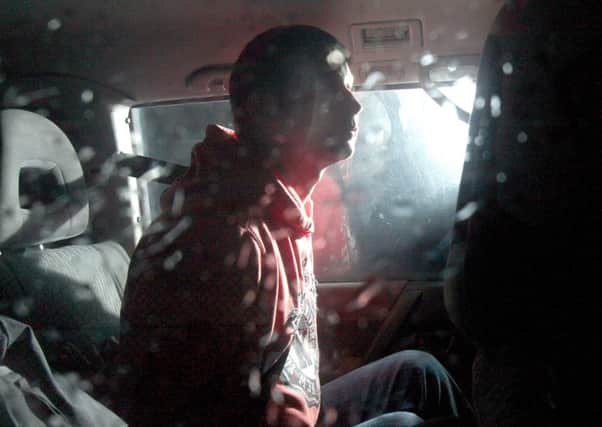Disappearance of David Black suspect '˜utterly outrageous'


The remarkable revelation was made at a hearing in Belfast, when a court was told that – despite conditions requiring him to sign bail at a police station five times a week – the 40-year old, from Kilmascally Road in Dungannon, last signed on November 18.
It was then another five weeks before police discovered milk which was a month out of date at his bail address.


Advertisement
Hide AdAdvertisement
Hide AdDamien Joseph McLaughlin’s trial is to begin on February 20. He has pleaded not guilty to charges including aiding and abetting murder.
He had previously had his bail conditions relaxed, including the removal of his monitoring tag.
The case looks set to raise fresh questions over the bailing of people who are accused of grave paramilitary crimes.


Advertisement
Hide AdAdvertisement
Hide AdKenny Donaldson, from the South East Fermanagh Foundation victims group to which Mr Black had belonged, said it was evidence that “our criminal justice system is broken”.
DUP MP Gavin Robinson said that a “softly softly approach” to bail for terror suspects “scandalises” justice.
Meanwhile UUP MP Tom Elliott said the latest development was “disgusting”, adding that allowing suspects who face serious charges to be freed on bail seems to have become “a habit” of the courts.
Mr McLaughlin has pleaded not guilty to aiding and abetting the murder of David Black, belonging to a proscribed organisation (namely the IRA), possession of articles for use in terrorism (namely a Toyota Camry), and preparation of terrorist acts.
His most recent bail conditions were as follows:
He was to report to police five days per week in Belfast.
Advertisement
Hide AdAdvertisement
Hide AdHe should not attempt to see, speak to, or in any other way contact two named individuals, either directly or indirectly.
He must surrender his passport, and not apply for a new one.
He must return home each night no later than 10.30pm, and stay at home each day until 7am, and come to the door at all hours in between if police demand it.
Gavin Robinson, the DUP spokesman for justice matters at Westminster, said the length of time it took police to act after he failed to sign bail was “utterly outrageous, and a betrayal to the Black family”.
Advertisement
Hide AdAdvertisement
Hide AdHe also said that elsewhere in the UK a suspect facing such charges would “never” be granted bail by the courts, “never mind have their conditions continually watered down”.
In January 2013, Craigavon Magistrates’ Court heard that police were opposed to granting bail for Mr McLaughlin, and bail was refused.
The High Court then refused him bail a month later, after prosecutors said police were afraid that he may flee.
Mr Justice Weatherup in the High Court granted him bail in May 2014.
Advertisement
Hide AdAdvertisement
Hide AdA News Letter report at the time said this had been opposed “amid claims he may flee or re-offend if released”.
However, the judge had “held it to be unwarranted for Damien McLaughlin to face a wait of up to two years before any trial takes place” (as was predicted at the time).
A bid to have his electronic tag removed during the same hearing was rejected.
The report quoted the judge Mr Justice Weatherup as saying he considered the tag “necessary”.
It was later removed.
Advertisement
Hide AdAdvertisement
Hide AdThe News Letter asked the PSNI, which is responsible for suspects signing bail, why it took seven weeks for Friday’s case to get to court, leading to a revocation of Mr McLaughlin’s bail.
It also asked whether Gardai had been notified that he could not be found.
The police’s response said simply: “We have nothing further to add than what has been disclosed at court today.”
In court on Friday, a warrant for his arrest was issued.
His bail had been granted on condition that two sureties were paid, amounting to £750 each.
Advertisement
Hide AdAdvertisement
Hide AdThese are essentially deposits, often paid by friends or relatives of a suspect, to ensure that people meet their bail conditions.
Asked if there was any upper limit on the sureties which the judge could have imposed, the Lord Chief Justice’s Office said “while there is no upper limit as to the value at which the surety can be set, the value of the surety must be proportionate and not be such as to render the defendant’s right to bail unachievable”.
It added: “In determining the appropriate value of a surety a judge will take into consideration a range of factors which may include the perceived risk of the defendant absconding (which may include the nature and seriousness of the alleged offence) and the financial resources available to the proposed surety.”